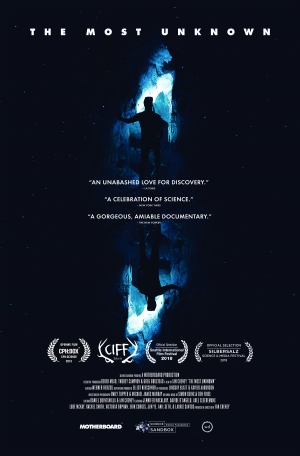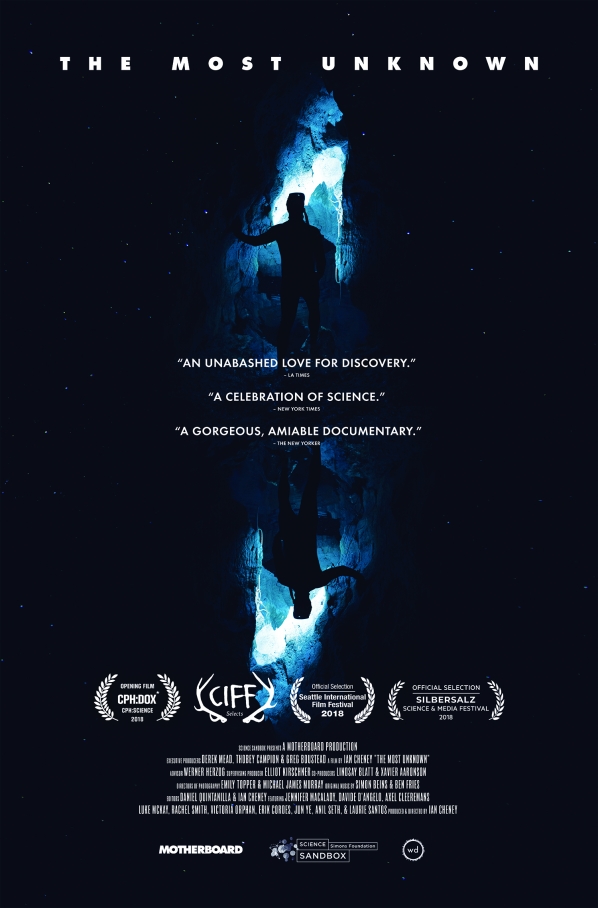Appalachian State University will host a viewing of the documentary film, “The Most Unknown” with one of the nine guest scientists featured in the film, Rachel L. Smith in attendance on Wednesday, Oct. 17 at 6 p.m. in the I.G. Greer Auditorium. “The Most Unknown” is an innovative documentary film that’s primed to reinvigorate love for scientific inquiry by exploring some of the universe’s toughest questions.
“The Most Unknown” sends nine scientists to extraordinary parts of the world to uncover unexpected answers to some of humanity’s biggest questions such as: How did life begin? What is time? What is consciousness? How much do we really know?
By introducing researchers from diverse backgrounds for the first time, then dropping them into new, immersive field work they previously hadn’t tackled, the film pushes the boundaries of how science storytelling is approached. What emerges is a deeply human trip to the foundations of discovery and a powerful reminder that the unanswered questions are the most crucial ones to pose.
Directed by Emmy-nominated and Peabody Award-winning filmmaker Ian Cheney (“The Search for General Tso” and the “The City Dark”) and advised by world-renowned filmmaker Werner Herzog (“Fitzcarraldo,” “Aguirre,” “The Wrath of God” and “Grizzly Man”), “The Most Unknown” is an ambitious look at a side of science never before shown on screen.
“Our hypothesis as filmmakers was that in pairing up scientists from different disciplines, we might reveal the common languages of science, and provide a raw, human glimpse of what propels scientists into the unknown. For me as a director, the filmmaking process was a profound reminder of the deep human wondering that drives science forward; whether you’re rappelling into caves to seek elusive microbes, probing the center of the galaxy for clues to our planet's origins, or teasing out the nature of consciousness itself, you’re expressing a very human curiosity to know what the heck is out there and why,” said Director Ian Cheney.
The film was made possible by a grant from Science Sandbox, a Simons Foundation initiative dedicated to engaging everyone with the process of science.
Rachel L. Smith is jointly appointed as an Associate Professor in the Department of Physics & Astronomy at Appalachian State University and as the Head of the Astronomy & Astrophysics Research Lab and Curator of Meteorites at the N.C. Museum of Natural Sciences. Smith is an observational astronomer interested in answering fundamental questions about how our solar system and other planetary systems form and evolve over time.
Smith uses the largest ground-based optical-infrared telescopes, including the 10-meter Keck Telescope on Mauna Kea in Hawaii, to investigate detailed chemistry hidden in the gas surrounding forming stars across the Galaxy. She uses high-resolution spectroscopic techniques on the Keck II telescope to determine precise abundances in the isotopes of carbon and oxygen in carbon monoxide gas (CO, the same molecule in car exhaust).
This gas is plentiful surrounding forming stars (often called young stellar objects, or protostars) that are analogues to our proto-Sun roughly 4.57 billion years ago. Data from these observations can be compared to meteorites and the Sun — together, the oldest material we have from the early solar system — in order to understand the early chemical pathways fundamental toward building planets and eventually, life.
Smith is currently analyzing data from protostars much more massive than the Sun in order to learn more about how star and planet formation may vary in different environments across the Galaxy. She currently teaches undergraduate courses in Astrobiology and Star Formation, which introduce many of the fundamental concepts that are at the core of astrophysics and her research.
This event is free and open to the public, sponsored by the Department of Physics and Astronomy with support from the College of Arts and Sciences at Appalachian.
###
About the Department of Physics and Astronomy
The Department of Physics and Astronomy’s curriculum has an applied nature that includes a core of fundamental physics courses and laboratory experiences. The department prepares graduates for a variety of scientific, teaching or engineering professions, as well as future educational endeavors. Learn more at https://physics.appstate.edu.
Sept. 20, 2018
Ellen Gwin Burnette
BOONE, N.C.

